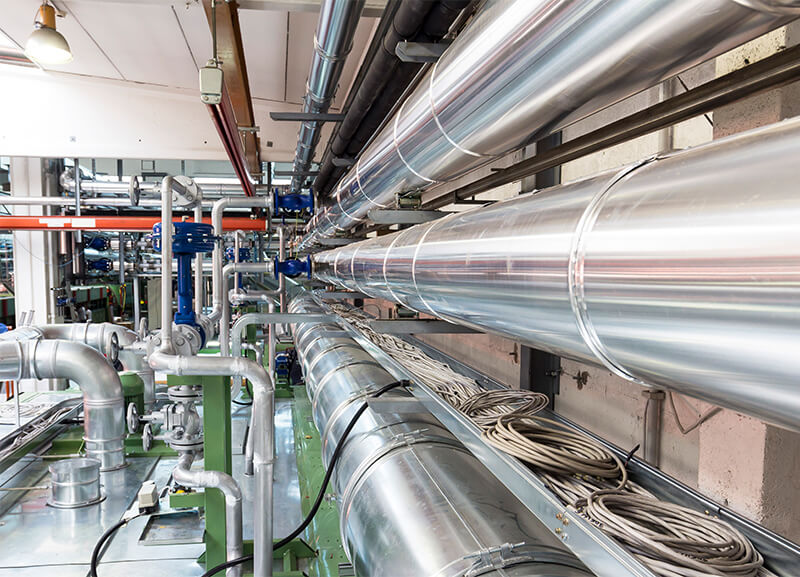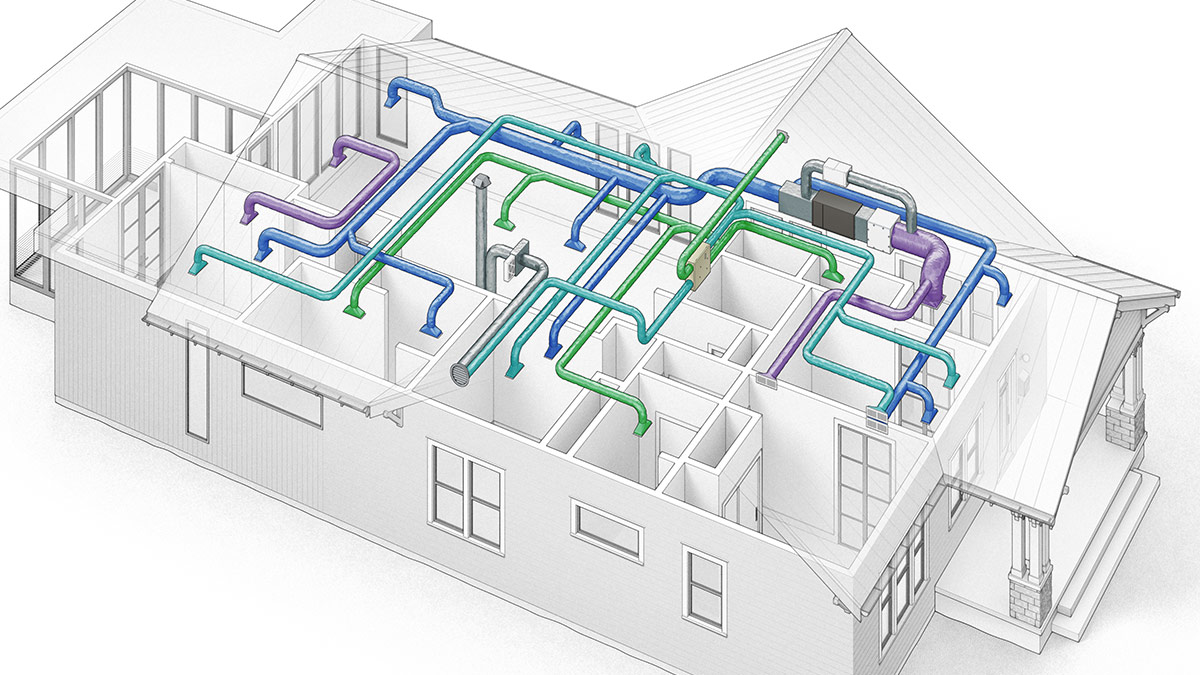Discover how HVAC experts offer service packages for systems
Wiki Article
Understanding the Various Kinds Of Heating And Cooling System for Optimum Performance
Comprehending the different types of cooling and heating systems is important for house owners intending to enhance convenience and energy efficiency. Central air systems supply uniform temperature control, while ductless mini-split systems provide adaptability. Heatpump provide efficient year-round environment management. For smaller rooms, window and mobile air conditioning system work as sensible options. Geothermal systems utilize constant below ground temperatures for lasting cooling and heating. Each alternative holds special advantages, prompting a more detailed evaluation of which could fit individual needs best.Air Conditioning Equipments
Many home owners seek methods to boost interior comfort, understanding main air conditioning systems is essential for reliable climate control. Central air conditioning operates by circulating amazing air with a system of ducts, dispersing it evenly throughout the home. This kind of system consists of several crucial components, including an outdoor compressor, an indoor evaporator coil, and a network of ductwork.The compressor cools down refrigerant, which after that absorbs warm from indoor air as it travels through the evaporator coil. This cooled air is pressed through the air ducts and into living areas, guaranteeing a regular temperature. Central air systems are known for their performance, often using programmable thermostats to enhance energy use. Routine upkeep, such as filter adjustments and system checks, is necessary to assure longevity and efficiency. Understanding these components aids home owners make informed choices pertaining to installation and upkeep, eventually improving convenience and power efficiency in their homes.

Ductless Mini-Split Systems
Ductless mini-split systems offer an adaptable choice to typical central air, catering to home owners looking for reliable climate control without the demand for considerable ductwork. These systems contain an outdoor compressor device and one or more indoor air-handling systems, permitting targeted air conditioning and home heating in particular areas or spaces. This zoning capacity enhances comfort by enabling customers to change temperature levels based on private choices, eventually bring about energy savings.Installment is typically easier and much less intrusive compared to ducted systems, which can be valuable for older homes or areas with limited architectural adjustments. Additionally, ductless mini-split systems usually feature energy-efficient modern technologies, such as inverter-driven compressors, which optimize power usage based upon need. Their portable layout additionally enables different positioning choices, making them ideal for unconventional or limited rooms. As a result, ductless mini-split systems have gained popularity amongst homeowners seeking modern, reliable HVAC options.
Warmth Pumps
Warmth pumps represent an energy-efficient and flexible option for both home heating and cooling down residential rooms. These systems operate by transferring heat instead than producing it, making them particularly efficient in modest climates. Throughout warmer months, warmth pumps draw out heat from indoors and launch it outside, supplying cooling. Conversely, in winter months, they reverse this process, drawing heat from the outdoors air or ground to warm the inside.There are two key kinds of heatpump: air-source and ground-source (or geothermal) Air-source heat pumps are much more typical as a result of their easier installation and lower initial expense, while ground-source models boast greater efficiency and security in performance. Additionally, heatpump can significantly lower try here energy costs and carbon footprints when contrasted to traditional heating approaches, making them a green choice. On the whole, warm pumps stand as an engaging solution for house owners seeking efficient environment control throughout the year.
Home Window and Portable Air Conditioners

On the other hand, portable ac unit offer flexibility, as they can be easily moved from area to area. These devices typically call for an airing vent package to wear down warm air with a window, yet they offer a practical choice for short-term cooling needs.
Both sorts of ac system are suitable for renters and those seeking to avoid extensive installation procedures. Individuals ought to consider factors such as BTU ability, power effectiveness scores, and noise degrees when choosing an unit to assure peak efficiency for their details room and air conditioning demands.
Geothermal Heating and Cooling Systems
As energy performance comes to be significantly crucial, geothermal cooling and heating systems have gained appeal for their lasting method to climate control. These systems utilize the stable temperature levels located below ground to provide home heating in wintertime and cooling in summer. By harnessing the earth's all-natural thermal energy, geothermal systems significantly reduce dependence on fossil fuels and reduced energy expenses.
Geothermal systems normally require much less maintenance contrasted to conventional HVAC systems, resulting in long-lasting financial savings. With boosting awareness of climate adjustment, these systems represent a forward-thinking option for those looking for environmentally friendly and reliable home heating and cooling choices
Regularly Asked Questions
Exactly how Usually Should I Service My A/c System?
Cooling and heating systems ought to preferably be serviced two times a year, once in the spring and when in the loss. Routine upkeep aids guarantee efficiency, extends life-span, and prevents costly malfunctions throughout height use seasons.What Dimension A/c System Do I Required for My Home?
Determining the suitable dimension for an a/c system requires determining the home's square video footage, insulation top quality, and climate. A professional analysis guarantees maximum effectiveness, comfort, and power cost savings tailored to the details requirements of the residence.Can I Mount a Cooling And Heating System Myself?
Setting up image source a heating and cooling system individually is feasible, but it calls for technical expertise and skills. Mistakes can cause ineffectiveness or safety threats, so getting in touch with an expert is frequently advised to guarantee correct installation and conformity with policies.What Are the Indicators My Heating And Cooling System Demands Repair Work?
Indicators that an HVAC experts a/c system needs fixing include uncommon sounds, inconsistent temperatures, raised power costs, unpleasant smells, and frequent cycling. Motivate interest to these indicators can avoid more damages and guarantee height system efficiency.How Can I Enhance My cooling and heating System's Energy Efficiency?
To enhance cooling and heating energy efficiency, one must routinely change filters, seal air ducts, mount a programmable thermostat, guarantee correct insulation, and schedule regular maintenance checks. HVAC experts. These activities collectively boost performance while lowering energy intake and costsCentral air conditioning systems supply uniform temperature level control, while ductless mini-split systems provide adaptability. Central air conditioning operates by flowing awesome air via a system of ducts, dispersing it evenly throughout the home. Central air conditioning systems are understood for their performance, typically utilizing programmable thermostats to optimize energy use. Ductless mini-split systems use a versatile option to standard central air conditioning, catering to property owners seeking efficient climate control without the need for extensive ductwork. Geothermal systems generally require less upkeep contrasted to conventional A/c systems, resulting in long-term savings.
Report this wiki page